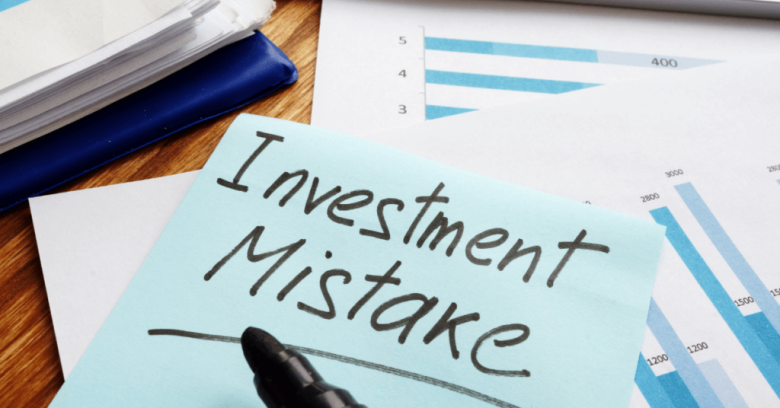Not having clear goals from the start is one of the most common and costly mistakes investors make. If you don’t know what you want to achieve, you can make the wrong choices, use different strategies, and miss opportunities. Goals can help you determine your investment horizon, the risk you’re willing to take, and how to allocate your assets. Whether you’re saving for retirement, buying a home, or simply building wealth over the years, having clear goals can help you choose the right assets and make smart decisions. Without goals, it’s easy to follow the crowd, and so on. Not knowing what to do can lead to wasted time, lost money, and more stress.
Trying to Time the Market
Trying to time the market is another big mistake investors often make. This entails attempting to purchase at a lower price and sell at a higher price by predicting the short-term direction of the market. This seems logical in theory, but timing the market consistently is very difficult, even for professionals. Most people who try to time the market miss important opportunities to move up or sell when the market is falling, which means they lose money. The stock market is difficult to predict, and making judgments based solely on short-term market changes usually ends badly. Investing for the long term and making regular deposits usually yields higher returns than trying to beat the market.
Not Diversifying
Putting all your money in one stock, sector, or asset type can be risky. If you don’t have a variety of investments, you could lose a lot if one doesn’t perform well. Diversification helps spread your risk across multiple asset classes, sectors, and geographies. So, if one part of your portfolio does poorly, other parts can do well, balancing your overall returns. Not diversifying is like putting all your money on one goal: it may work sometimes, but it’s not a good way to grow your wealth or an effective way to do so in the long run.
Making Decisions based on Your Gut Feeling
Investing based on gut feeling can be detrimental for both novice and experienced investors. Fear, greed, excitement, and panic can make it difficult to think clearly and make quick decisions. If you sell stocks when the market is down because you’re scared or buy popular stocks because everyone else is scared, you could lose a lot of money. Successful investors know how to control their emotions and stick to their strategies, even when the market is volatile. To avoid emotional mistakes that can ruin your financial goals, you need to be disciplined, stay well-informed, and take a long-term view.
Insufficient Research
Investing without doing your homework is like investing without a chart. It’s important to understand what you’re investing in, how it works, and what the risks are. Many people buy stocks, ETFs, or cryptocurrencies based on what their friends or social media accounts say without doing their research first. Such behavior can lead you to buy assets that are overhyped or overpriced and don’t fit your goals or risk appetite. Doing good research means understanding the company or asset, reading the financial statements, following market trends, and being alert to warning signs. Well-informed investors can make smarter decisions and avoid costly mistakes.
Not Rebalancing your Portfolio
If you don’t rebalance your portfolio over time, you risk taking unexpected risks, even if you initially opt for a well-diversified portfolio. Some assets grow faster than others, which can throw your portfolio out of balance and lead to overinvestment in one asset or sector. You may not even realize this, and this can increase your risk. Rebalancing your portfolio regularly, such as once or twice a year, can help keep it in line with your intended allocation. It also allows you to sell assets that are performing well and buy more undervalued ones. If you don’t rebalance your portfolio, it may no longer meet your goals or risk appetite, which will affect your returns.
Ignoring Tax Implications
Taxes are a crucial part of investing. If you’re not careful, you could end up with an unexpected bill that reduces your profits. How you manage your investments can also affect the taxes you pay. For example, if you keep your investments in a tax-advantaged retirement account instead of a taxable investment account, you could pay less in taxes. You may have to pay taxes on capital gains, dividends, and interest income. If you don’t manage your taxes properly, you could be surprised by a lower net profit when tax season rolls around. Smart investors understand how taxes work and use legal and effective methods to reduce their tax burden.
Conclusion
When investing, making smart choices is just as important as avoiding costly mistakes. Setting clear goals, not relying on feelings, staying diversified, being well-prepared, and taking a long-term view can significantly increase your chances of success. Investing isn’t about luck or timing; it’s about perseverance, discipline, and planning ahead. Every mistake you make is a step closer to long-term financial security and growth. No investor is perfect, but you can build a strong investment foundation by learning from the mistakes of others and sticking to your plan. If you are patient, work hard, and follow sensible habits, you can become wealthy and achieve your financial goals.
FAQs
1. What are the most common mistakes people make when investing?
One of the most common and deadly mistakes is trying to time the market. This often leads people to buy high and sell low, which results in poor returns.
2. Why is diversification important?
Diversification reduces risk by investing money in different assets and sectors. It ensures that poor performance in one area doesn’t ruin the entire portfolio.
3. How often should I rebalance my portfolio?
Most experts recommend rebalancing your portfolio at least once a year to ensure that it is aligned with your goals and the level of risk you are willing to take.
4. Can I still invest if I don’t have much money?
Yes, you can start investing on different platforms with a small amount of money. Even small, regular investments can add up to a small fortune over time.
5. What if my investments fail?
Don’t panic. Please take a moment to review your plan, reflect on any mistakes, and make the necessary adjustments. Every investor makes mistakes; the important thing is to keep learning and moving forward.




